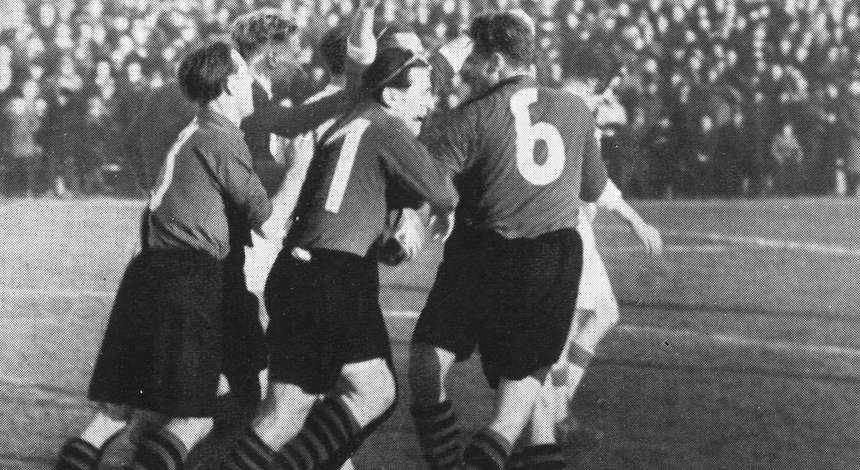
The match starts quietly and fairly. Bayer 04 press for the lead but August Schiefer, Manfred Höher and Theo Kirchberg miss clear-cut opportunities. Eickel take the lead from a counter-attack and the Werkself fail to equalise from the penalty spot. The visitors take their lead into half-time.
The leveller comes quickly in the second half but Eickel counter-attack again to promptly retake the lead. Bayer 04 crank up the tempo. And, within a short space of time, the match is turned round and the Werkself are 4-2 up. Manfred Höher, Bubi Becks and August Schiefer are the goalscorers. The match now begins to take a turn for the worse.
First, the Eickel player Ratajczak kicks the Bayer 04 defender Jakob Kaiser, who refuses to be intimidated and kicks straight back – both are sent off. The visitors' keeper Golbach enters into discussions with spectators behind the goal and he verbally abuses them. When he tries to punch a spectator through the net, a fist fight ensues next to his goal on 76 minutes during which two visiting players and two spectators vent their rage. It develops into a real punch-up.
Children and teenagers run onto the pitch to get a closer look at events. The match is suspended and the visitors return to the dressing room with the exception of two players. The pitch is cleared after a few minutes and the referee asks the two teams to resume the game. However, the Eickel players refuse. They try to get the match abandoned so it can be replayed.
The association ruled in favour of Bayer 04 a couple of weeks later as the team were not at fault and a 4-2 win was awarded to the Werkself. The two spectators who were involved in the fight were disciplined by the club but were back at the next game. Stadium bans were unknown at that time.
Related News
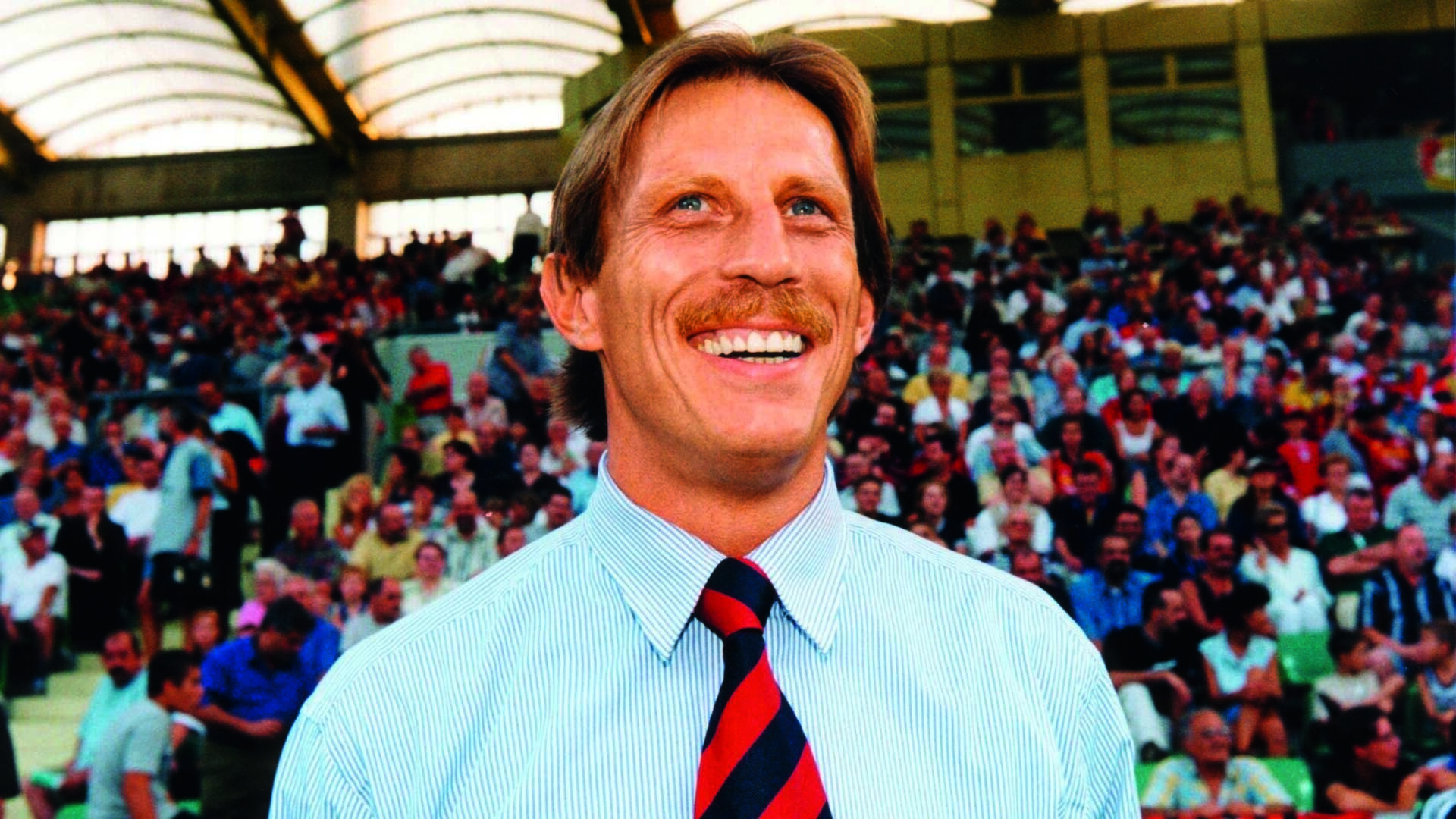
Legend: Christoph Daum - The man who taught us to want
Christoph Daum was born on 24 October 1953 in Zwickau. As a child, he moved to West Germany with his mother and grew up in Duisburg. He developed a great enthusiasm for football at an early age, even though it soon became clear that his future lay less on the pitch than on the sidelines. Even at a young age, his passion for analysing, explaining and improving things became apparent.
Show more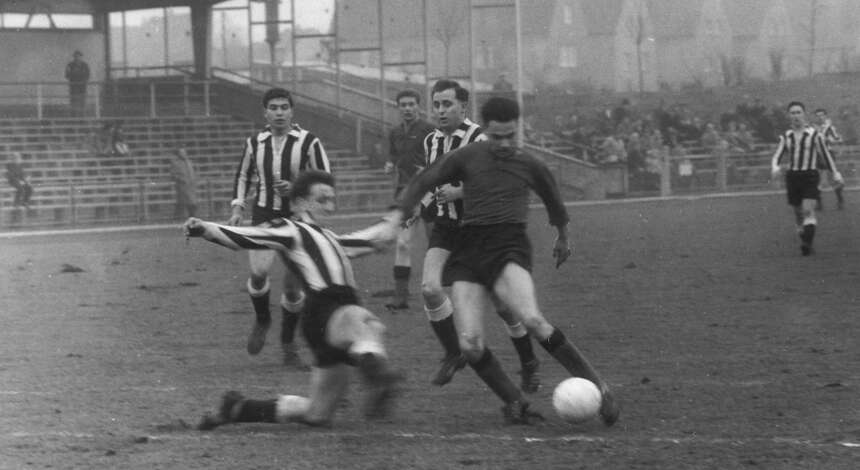
From the archives: 65 years ago - Another victory at last
When the Bayer 04 players celebrated Christmas in 1960, they spent the winter in second place in the Oberliga West 2 on 20 points - but already five points behind leaders Schwarz-Weiß Essen. However, coach Erich Garske's team are struggling to get back on track in the new year. A goalless draw against Bonner FV at home at the Ulrich Haberland Stadium was followed by a 2-1 away defeat in Erkenschwick. The following home game also yielded just one point. As a result, the team's promotion ambitions dwindled to a minimum, as the gap to the coveted spot has now grown to a challenging ten points.
Show more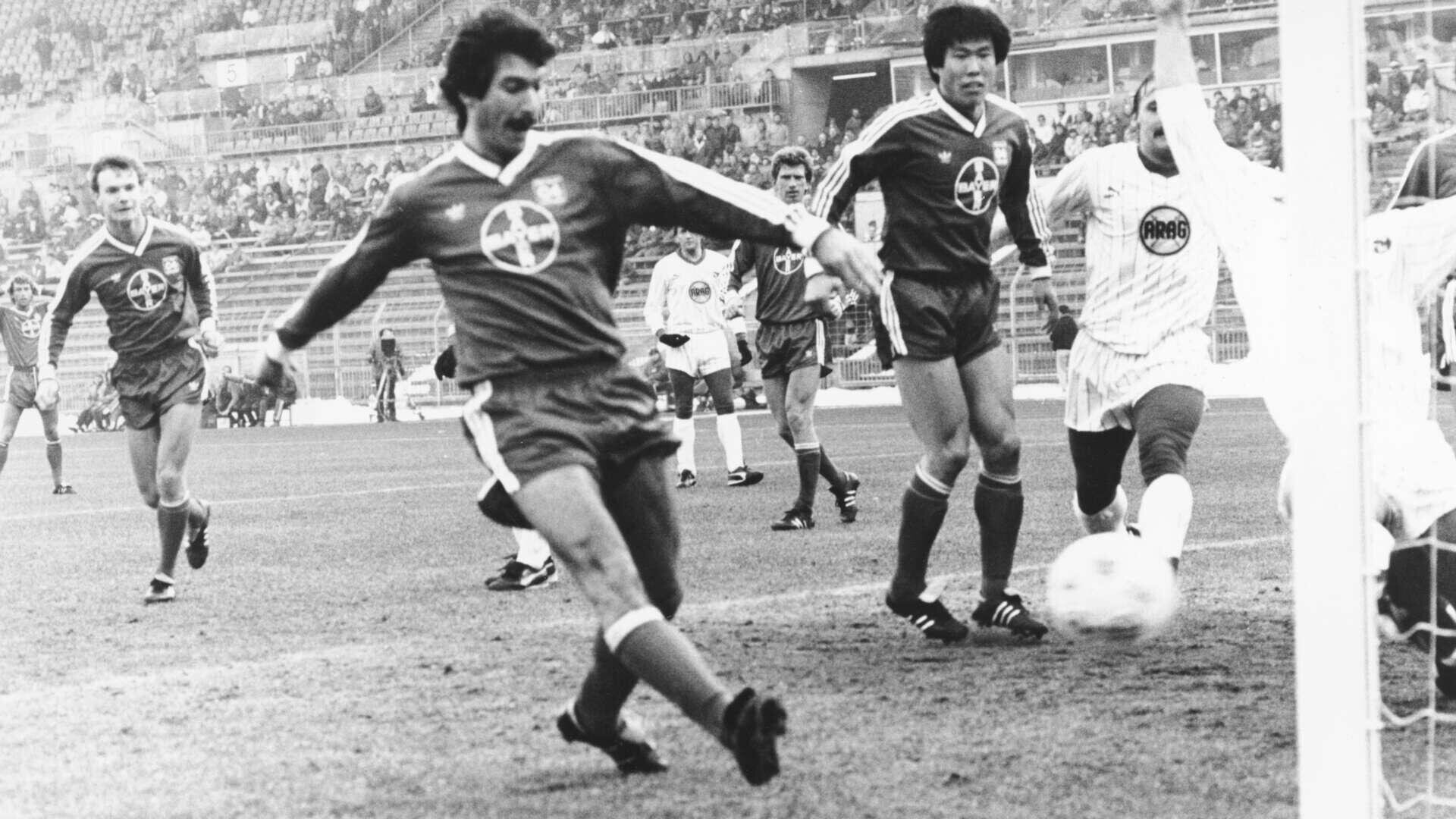
Goals of the month: From Waas to Tapsoba
In this video you can see impressive and important goals in Bayer 04 history from the month of February. It's not always about the beauty of the goals, but also a reminder of special games and players.
Show more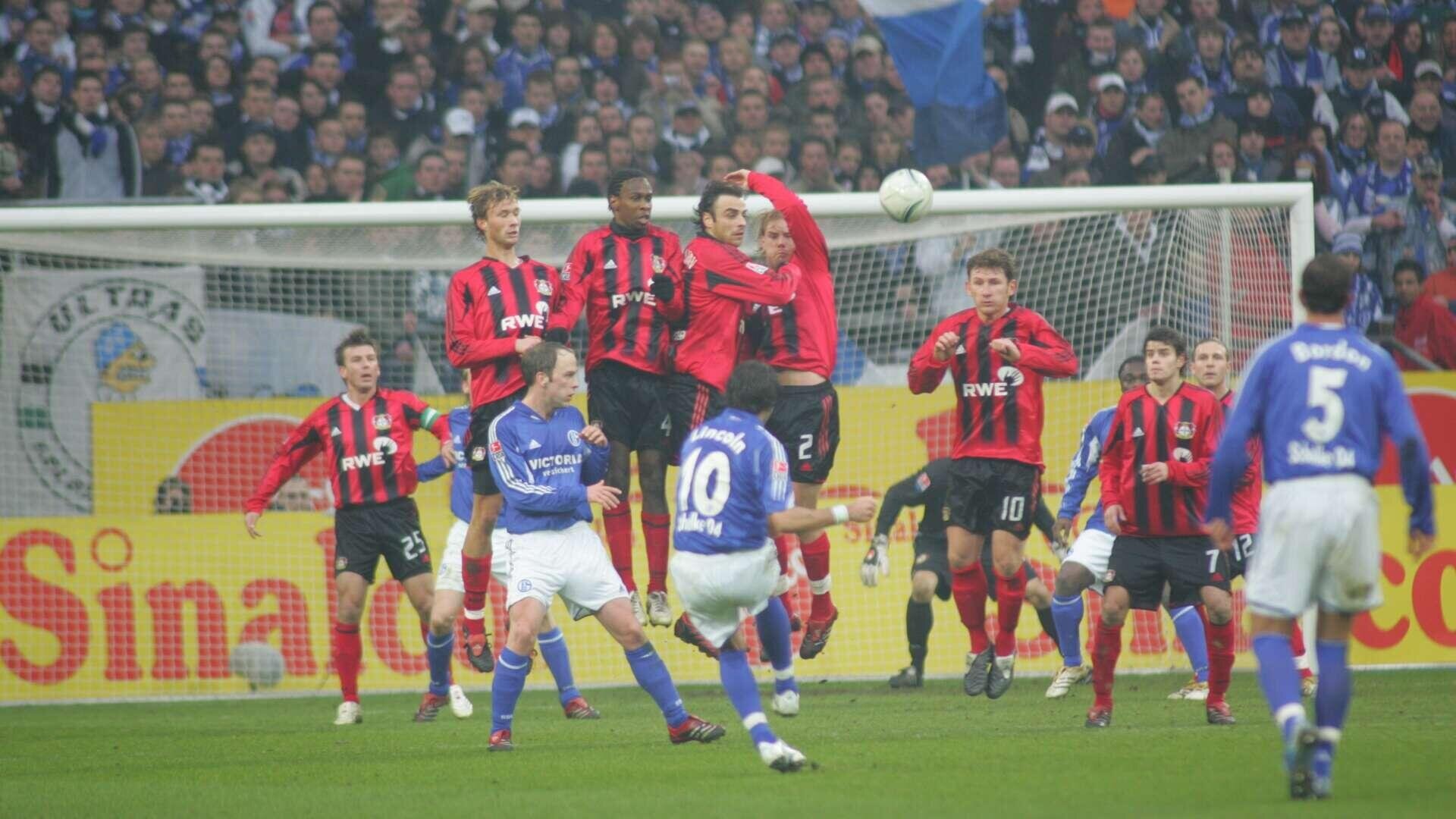
Match of the month: 20 years ago - A game of goals galore
It is 11 February 2006 and Schalke 04 and the Werkself kick off at 3.30 p.m. in a match that ends up being historic - at least from a Bayer 04 perspective.
Show more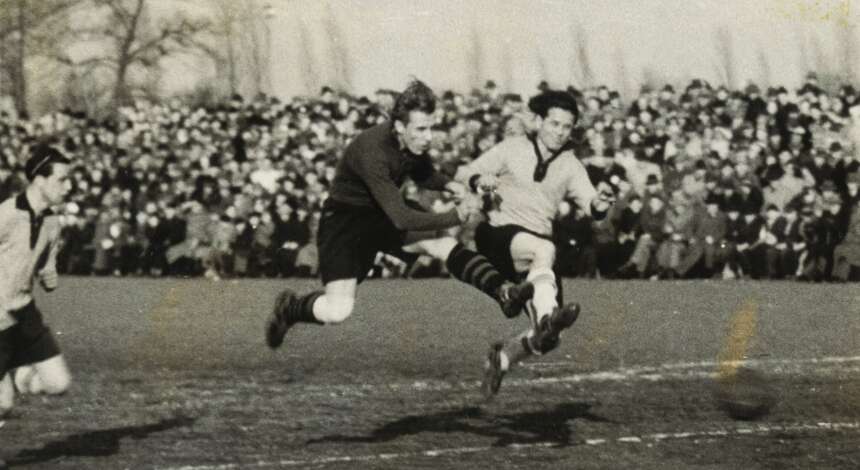
History: 75 years ago - The 1950/51 season (February)
As league leaders, the Werkself welcomed the relegation-threatened team from Rhenania Würselen. On 4 February 1951, 5,000 spectators line the touchlines despite the Sunday carnival parades. And they see a home team that is superior on the pitch. Without Theo Kirchberg, who was ill, and Emil Becks, who was suspended, the hosts attacked the opposing goal from the start. Battling against a strong wind in the first half, Bayer 04 created chance after chance, but were repeatedly thwarted by the Würselen goalkeeper. With the score at 0-0 at half-time, Karl Heinz Spikofski tried his luck on 55 minutes and hammered the ball into the opposition net from 20 metres out. Rhenania can no longer counterattack. The siege of the Würselen penalty area continued right to the end, but the game ended in a narrow 1-0 win.
Show more